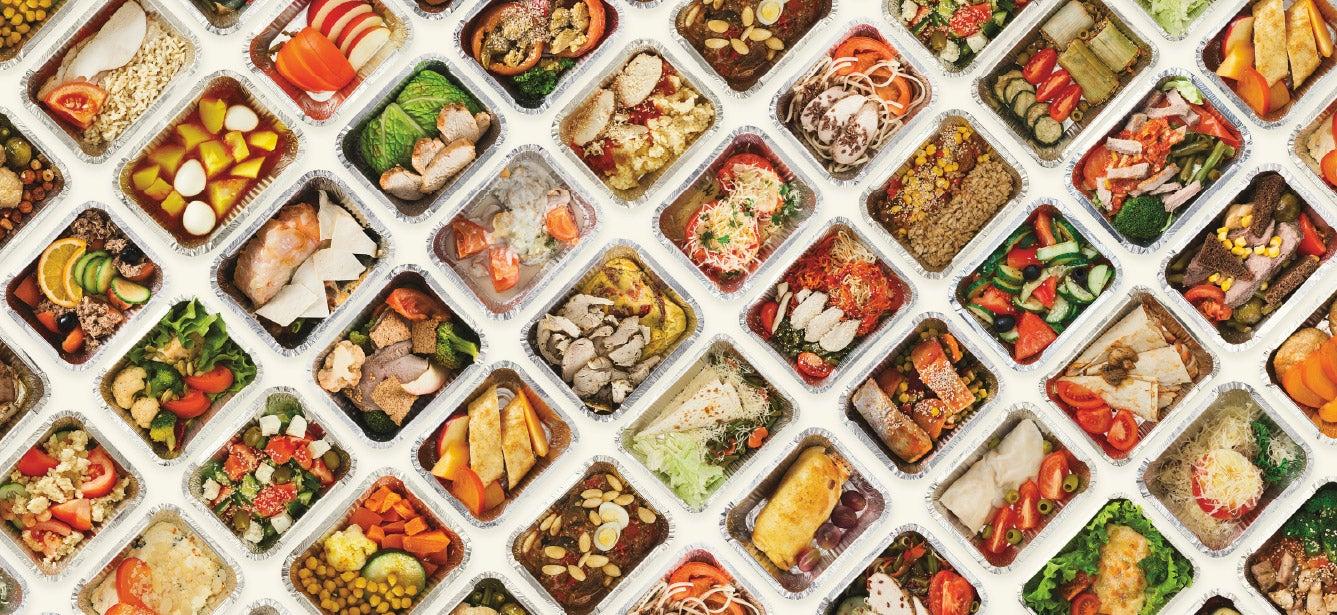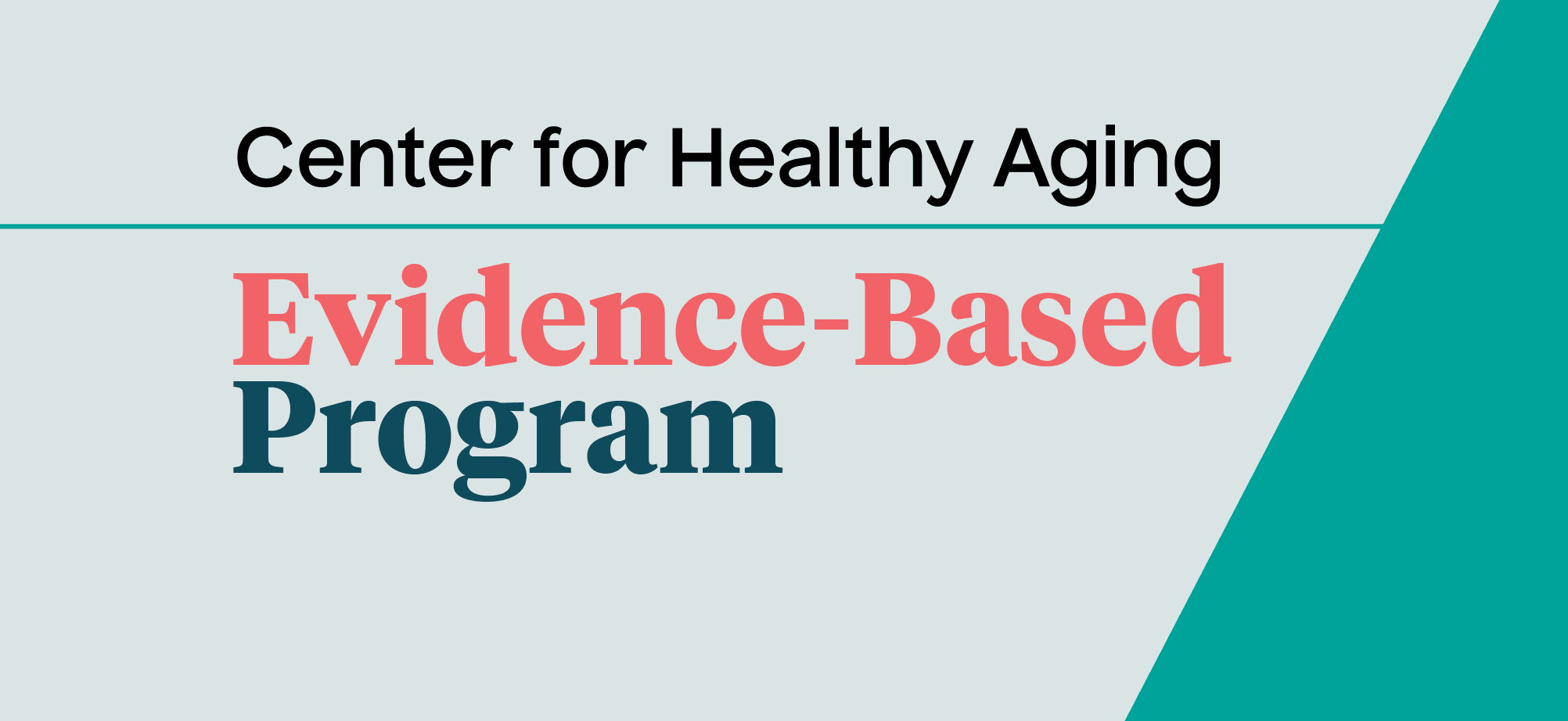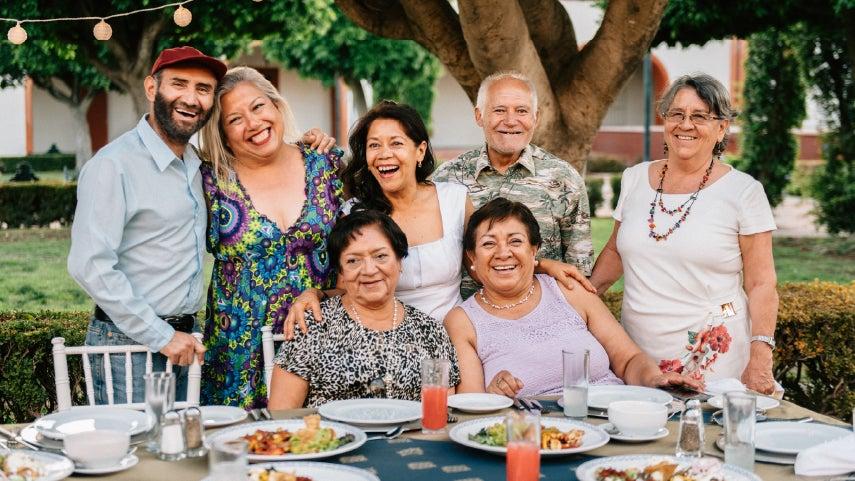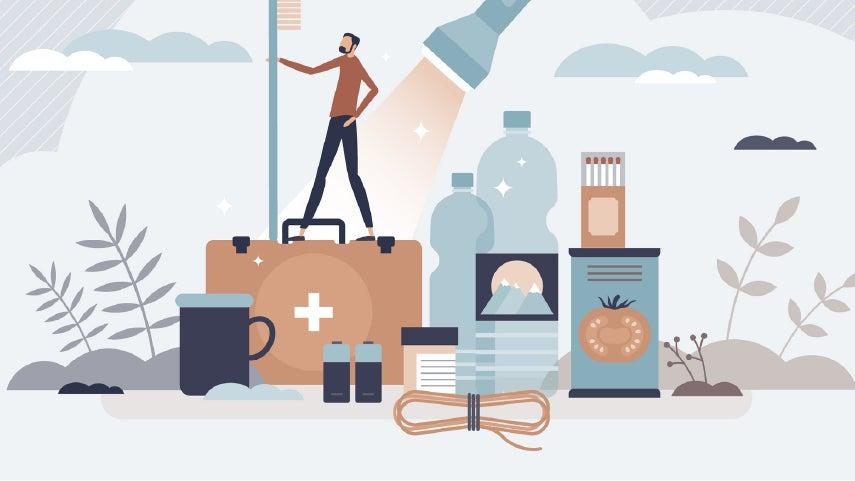Connecting Home Delivered Meal Participants to Remote Evidence-Based Programs
6 min read

The home-delivered meals and congregate nutrition services available to older adults 60 and older across the country through the Older Americans Act (OAA) Nutrition Services are designed to reduce hunger, food insecurity, and malnutrition in older adults. Yet the benefits are can be even broader.
Often, these meals are considered “more than a meal” as they provide companionship, wellness checks, and access to many other community-based services, including the opportunity to participate in evidence-based programs.
A research study conducted by Meals on Wheels America in partnership with other entities found lowered health care use and cost among meal recipients. Medicare claims data showed that 180 days after starting Meals on Wheels, hospitalization rates dropped by 31%, emergency department rates dropped by 13%, and nursing home use declined by 25%.1
Nutrition services and evidence-based programs
Before the widespread introduction of remote offerings for evidence-based health promotion programs in 2020, such as videoconference, phone, and toolkit, there were limited opportunities for homebound older adults to participate in these programs. Typically, these workshops were held in-person at senior centers, faith-based organizations, and other community settings.
Now, evidence-based programs can be held online, by phone, and in-person. Depending on what is allowed by the program developer, it might be a combination of the three.
Pairing meals, clinical services, and evidence-based programs
The Delaware-based 2022 ACL Chronic Disease Self-Management Education (CDSME) grantee Education Health and Research International, Inc. shared how they are able to engage home-delivered meal participants in evidence-based programs.
Their organization serves over 200 individuals who are homebound, and they receive benefits from WeCare. WeCare is a patient navigation service that is a part of the Milford Wellness Village, which has a skilled nursing facility and provides medical services. WeCare has a group of nurses who reach out to home-delivered meal clients to see what services they might be interested in, such as evidence-based programs or other services to help improve their quality of life.
Many of their patients start to feel better so they do not feel like they need to take their medications anymore, and there is a lack of understanding that a chronic condition is a lifelong illness. The grantee partners with Modern Maturity Center to deliver meals to several thousand people a day. The WeCare nurses ride along with the home delivery meal staff and have the opportunity to get to know the clients. Currently, they offer the Chronic Disease Self-Management Program, Diabetes Self-Management Program, and HomeMeds remotely.
It’s a social model driven by a medical decision-making process.”
All of their classes are delivered remotely. Through a partnership with the Delaware Assistive Technology Institute from the University of Delaware, there is access to technology. Nurses from WeCare go into the client’s home to help train them on the technology or help train family members. At this time, home-delivered meal volunteers don't help with this process as WeCare has the capacity among staff.
For recruiting, one advantage of working with WeCare is that they make daily phone calls to clients. They also have access to their medical records, so they can do targeted outreach when they have an upcoming program such as a Diabetes Self-Management workshop for their diabetic patients.
So far, the program is paying off and the participants of the programs are enjoying their involvement. Retention rates have been good, and participants are writing powerful letters to their providers.
Everybody [in the class] wrote a letter [to their provider]. It's amazing, and they were profound.”
They see a perfect recipe in combining nutrition services, clinical services, and evidence-based programs for strong management of chronic conditions. It has been a process of determining how to tie the person, place, and program all together. Providing the programs virtually to these groups has allowed them to do that and reach a group that may not already have access but who can greatly benefit.
Expanding opportunities for home-delivery meal participants
Lanakila Pacific is a 2021 ACL Innovations in Nutrition Programs and Services grantee. Their Meals on Wheels (MOW) program is the biggest external-facing portion of their organization, and they are the largest and only island-wide home-delivered meal provider for homebound individuals.
Before the COVID-19 pandemic, elders would come to Kupuna (Honored Elder) Wellness Centers for congregate meals. While they were at the Wellness Centers for a meal, they would also participate in health promotion programs. Their congregate dining program has existed in this model for 40 to 50 years. On average, these wellness centers served over 400 people weekly. However, they had to transition to remote with the start of the COVID-19 pandemic in 2020 to offering everything online and meals off-site. Overall, they saw around a 65% increase in the number of people served in response to the beginning of the COVID-19 pandemic.
Stay active, age in place, and stay healthy—that’s the goal.”
Lanakila Pacific developed two programs: Kupuna Tech and Kupuna Connect. Kupuna Tech is a digital literacy course to help people feel ready to go online. Participants can bring their own technology or use rented tablets. Kupuna Connect hosts a wide variety of classes, including health and wellness classes. Both programs were well-regarded by participants, and they wanted to continue to offer remote programming for their community. Now, they have combined the efforts into Kupuna U, a unifying hub of all of their activities as well as activities from partner organizations.
They are open to a wide variety of partners joining their platform including other senior service organizations, social service organizations, parks, the local police department, banks, and others.
All activities are still remote, but they are experimenting with hybrid models. Lanakila Pacific has found with the addition of technology they are able to reach more younger older adults. Right now, joining Kupuna U is only for their congregate meal participants.
There is still more to learn as they are expanding opportunities with Kupuna U, but they are excited about the new people they are able to reach on a regular basis.
Find other resources on this topic on the Nutrition and Aging Resource Center.
Sources
1. Meals on Wheels America. The Impact of Home-Delivered Meals on Overall Health and Associated Use of Healthcare Services. More than a Meal: Medicare Claims Analysis. 2016. Found on the internet at https://www.mealsonwheelsamerica.org/learn-more/research/more-than-a-meal/medicare-claims-analyses
This project was supported, in part, by grant number 90CSSG0048 and 90FPSG0051 from the U.S. Administration for Community Living, Department of Health and Human Services, Washington, D.C. 20201. Grantees undertaking projects under government sponsorship are encouraged to express freely their findings and conclusions. Points of view or opinions do not, therefore, necessarily represent official Administration for Community Living policy.
A special thank you to the following individuals for their contributions to the article via interviews:
Lon Kieffer, Milford Wellness Village
James Li, Lanakila Pacific
Kemi Sanni, WeCare Services


